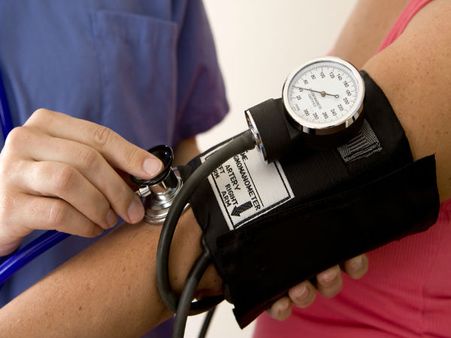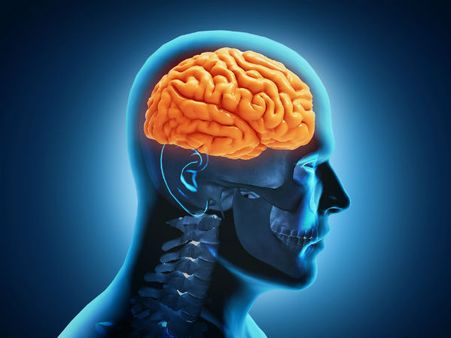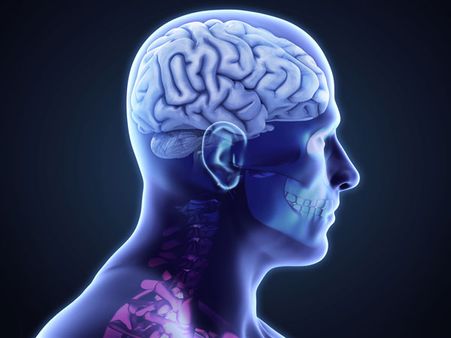Just In
- 1 hr ago

- 2 hrs ago

- 5 hrs ago

- 12 hrs ago

Don't Miss
- Sports
 Who Won Yesterday's IPL Match 34? LSG vs CSK, IPL 2024 on April 19: KL Rahul Stellar Batting Show Decimate Chennai Bowling
Who Won Yesterday's IPL Match 34? LSG vs CSK, IPL 2024 on April 19: KL Rahul Stellar Batting Show Decimate Chennai Bowling - Finance
 Rs 17/Share Dividend: Record Date On April 26; Buy The ICICI Group Stock To Be Eligible?
Rs 17/Share Dividend: Record Date On April 26; Buy The ICICI Group Stock To Be Eligible? - Movies
 Chief Detective 1958 Episode 2 OTT Release Date, Time, Platform: When & Where To Watch? What To Expect? DEETS
Chief Detective 1958 Episode 2 OTT Release Date, Time, Platform: When & Where To Watch? What To Expect? DEETS - News
 Chinese President Xi Jinping Orders Biggest Military Reorganisation Since 2015
Chinese President Xi Jinping Orders Biggest Military Reorganisation Since 2015 - Education
 Exam Pressure Does Not Exist; Studying Punctually is Crucial; Says Aditi, the PSEB 2024 Topper
Exam Pressure Does Not Exist; Studying Punctually is Crucial; Says Aditi, the PSEB 2024 Topper - Automobiles
 Suzuki Swift Hatchback Scores 4 Star Safety Rating At JNCAP – ADAS, New Engine & More
Suzuki Swift Hatchback Scores 4 Star Safety Rating At JNCAP – ADAS, New Engine & More - Technology
 Dell Introduces AI-Powered Laptops and Mobile Workstations for Enterprises in India
Dell Introduces AI-Powered Laptops and Mobile Workstations for Enterprises in India - Travel
 Journey From Delhi To Ooty: Top Transport Options And Attractions
Journey From Delhi To Ooty: Top Transport Options And Attractions
Surprising Ways In Which Stress Can Affect Your Health
Stress can affect our health in many ways. It can raise the blood pressure, increase cravings, fat storage, etc. Read to know how stress affects health.
Psychological stress can affect our health in several ways. Stress can manifest in many ways, whether it may be due to a major life event like divorce or job loss, or other work-related factors. It may also occur due to short-term frustration like traffic jam.
There are several ways in which stress can affect our bodies. Your nagging headache, frequent insomnia or decreased productivity at work might actually be the after-effects of stress.
Before it's too late to realize how stress can affect your health, it's high time you realized the ways in which stress can affect your health.

Stress symptoms can affect the body, thoughts, feelings as well as the behaviour. If you're able to recognize the common symptoms of stress, you'll be able to manage them better.
When stress is left unchecked, it can lead to many health problems like high blood pressure, heart disease, diabetes and obesity.
Some of the common effects of stress on the body can be headache, chest pain, muscle tension, fatigue, change in sex drive and stomach problems.

In this article, you'll come to know how stress affects health. So, continue reading in order to know the effects that stress can have on health.

1. Blood Pressure:
Stress can churn out hormones like cortisol that can raise the blood pressure levels. If this is sustained for days, it can lead to serious health complications as well. Stressful situations can raise your blood pressure level temporarily, by constricting the blood vessels and speeding up the heart rate.

2. Cravings:
Cortisol, a hormone that is released during the time of stress, increases the craving for sugar and fat. If you already have a high body mass index, then you're more susceptible to it.
The only way to protect yourself from this is to know about the possible triggers (of stress) and stock up on healthy snacks.

3. Fat Storage:
Stress is correlated to weight gain. The stress hormone cortisol may increase the amount of fat tissue your body hangs onto and also enlarges the size of the fat cells.
Higher levels of cortisol is linked with more abdominal fat. This will let you know how stress affects health.

4. Heart:
People who have more stressful jobs are likely to have a first heart attack than people with less job-related stress. You need to focus more on reducing the stress in your life in order to lead a heart-healthy lifestyle. This is also mentioned in the study 'Type D Personality: The Heart, Stress And Cortisol'.

5. Insomnia:
Insomnia can cause hyperarousal, a state in which people just don't feel sleepy. Long-term exposure to chronic stress can disrupt the sleep and contribute to sleeping disorders.
Trying yoga and other stress-busting activities during the day will help in a big way.

6. Headaches:
Chemicals like adrenaline and cortisol can cause vascular changes that can leave you with a tension headache or migraine. Stress can also make your muscles tense, which can make your migraine pain worse. This is also confirmed in the study 'Stress, Anxiety, Depression And Migraine'.

7. Memory:
Too much of stress hormone cortisol can interfere with the brain's ability to form new memories. During stress, the hormone interferes with neurotransmitters, the chemicals which the brain use to communicate with each other.
This will make it difficult to think straight or find relief from stress.

8. Can Affect Hair Texture:
Severe stress can actually affect your hair texture. Stress is known to play a role in triggering hair loss in the autoimmune condition called alopecia areata.

9. Pregnancy:
Severe stress can increase the chance of premature labour. High levels of stress can also affect the developing foetal brain. Prenatal yoga and stress-reduction techniques are advised during such situations. This is one of the top causes and effects of stress.

10. Blood Sugar:
Stress can raise the blood sugar levels. If you already have type 2 diabetes, then you'll find that your blood sugar is higher when you're under stress.
Tweaking your eating habits, exercising often, changing your medication will help to keep it under control. This is one of the top effects of stress on the health.

11. Digestion:
Stress can worsen heart burn, stomach cramping and diarrhoea. Further, irritable bowel syndrome (IBS) is also fueled by stress.

12. Brain Tissue:
Major stresses can reduce the amount of tissue in the regions of the brain that regulates emotion and self control. This damage can make it difficult to deal with future stresses even harder.
This can be reversed with stress management techniques.

13. Skin:
Acne sufferers can attribute it to stress. Stress can increase the occurrence of zits and outbreaks. An increase in the male hormone called androgens is the main culprit in the case of women.

14. Back Pain:
Stress can actually trigger acute back pain. It can also contribute to chronic back pain.
People who are prone to anxiety and negative thinking are more likely to develop back pain.

15. Sex Appeal:
It was found that women were less attracted to men with higher levels of stress hormone cortisol, when compared to men with lower levels.
This is because, it was believed that low levels of stress hormones suggested strength and health.
-
 healthIs Office Stress Messing With Your Health? 5 Red Flags You Can't Ignore!
healthIs Office Stress Messing With Your Health? 5 Red Flags You Can't Ignore! -
 healthMental Health: Five Crucial Tips Every Stressed Out Student Should Know!
healthMental Health: Five Crucial Tips Every Stressed Out Student Should Know! -
 healthWorld Heart Day: 5 Habits That Can Improve Heart Health Other Than Exercise And Diet
healthWorld Heart Day: 5 Habits That Can Improve Heart Health Other Than Exercise And Diet -
 healthGain Control of Your Stress and Guard Your Heart!
healthGain Control of Your Stress and Guard Your Heart! -
 healthUnlock the Magical Stress-Busting Power of Indian Spices and Herbs
healthUnlock the Magical Stress-Busting Power of Indian Spices and Herbs -
 healthDid You Know That Chronic Stress Can Affect Menstruation And Vice Versa?
healthDid You Know That Chronic Stress Can Affect Menstruation And Vice Versa? -
 healthScented Wellness: Unraveling Aromatherapy's Powerful Healing Benefits
healthScented Wellness: Unraveling Aromatherapy's Powerful Healing Benefits -
 healthOnam Work-Life Balance: 5 Expert Tips To Enjoy The Festival Stress-Free
healthOnam Work-Life Balance: 5 Expert Tips To Enjoy The Festival Stress-Free -
 healthFrom Mind To Gut: The Surprising Connection Between Stress And Digestion
healthFrom Mind To Gut: The Surprising Connection Between Stress And Digestion -
 beautyHair Loss From Stress? Try These Ayurvedic Remedies
beautyHair Loss From Stress? Try These Ayurvedic Remedies -
 healthPTSD Day: 4 Common Causes Of Post Traumatic Stress Disorder
healthPTSD Day: 4 Common Causes Of Post Traumatic Stress Disorder -
 healthFeeling Anxious And Jittery? Avoid These Foods When You Are Stressed!
healthFeeling Anxious And Jittery? Avoid These Foods When You Are Stressed!


 Click it and Unblock the Notifications
Click it and Unblock the Notifications



